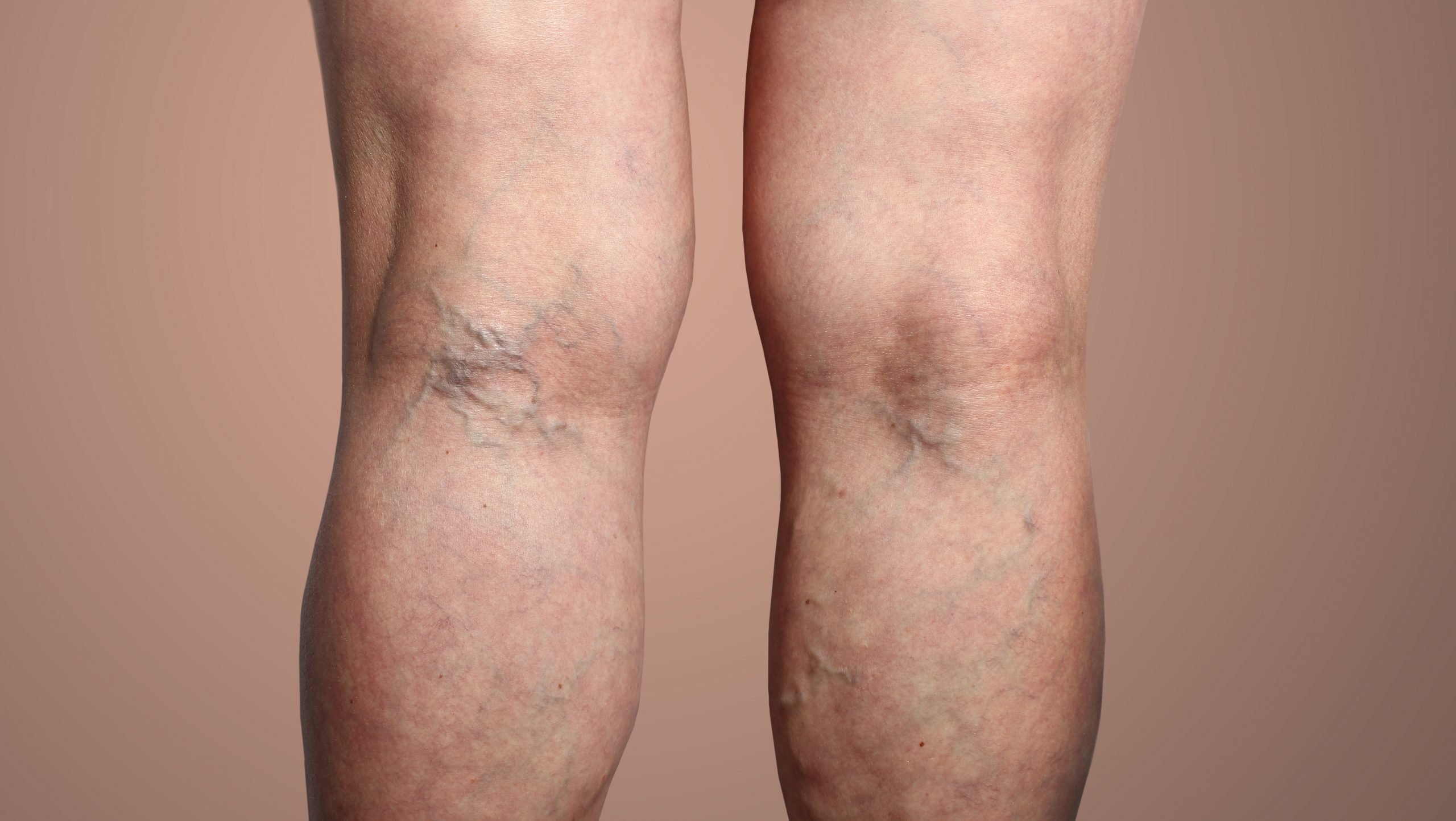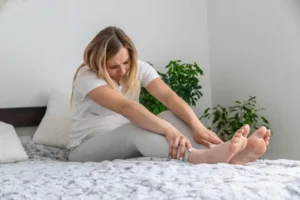Summary:
Leg swelling is more than just discomfort—it can signal underlying vein problems that require attention. At Miami Vein Institute, patients learn how vein health affects circulation, mobility, and overall wellness. This blog explores the causes of leg swelling, signs to watch for, and treatment options that can improve both comfort and confidence. With the right care, many patients see a significant reduction in swelling and improved quality of life. If you’ve noticed persistent swelling, don’t wait—schedule a consultation with Miami Vein Institute today to find a personalized solution.
Many people experience leg swelling at some point, but few understand its connection to vein health. Swollen legs can be caused by lifestyle factors, injuries, or more serious underlying vein issues. By recognizing the signs early, you can prevent complications and improve circulation, comfort, and overall leg health. Understanding leg swelling and veins is essential to maintaining mobility and a high quality of life. Sometimes, even mild swelling can indicate early vein disease that, if addressed promptly, can prevent future problems and reduce discomfort.
Common Causes of Leg Swelling
Leg swelling, medically called edema, can stem from multiple factors. While sometimes temporary, persistent swelling often points to a vein-related problem. Common causes include:
- Chronic venous insufficiency: When veins fail to properly return blood to the heart, fluid can pool in the lower legs.
- Varicose veins: Twisted or enlarged veins can hinder circulation, leading to swelling and discomfort.
- Lifestyle factors: Prolonged sitting or standing, high-salt diets, and lack of exercise can exacerbate swelling.
- Injury or surgery: Trauma to the legs or surgical procedures may trigger temporary or long-term swelling.
- Medical conditions: Heart, kidney, or liver problems can also contribute to fluid retention in the legs.
Even small lifestyle changes, like taking short walking breaks, elevating your legs, or wearing supportive footwear, can make a noticeable difference in reducing mild swelling. While not all swelling signals a serious condition, chronic or painful swelling should be evaluated by one of our vein specialists.
Why Vein Health Matters for Leg Swelling
Veins play a crucial role in returning blood from the legs to the heart. When they’re compromised, fluid buildup occurs, causing swelling. Key insights include:
- Vein valves and circulation: Healthy veins contain one-way valves to prevent blood from flowing backward. Malfunctioning valves can create pressure and fluid accumulation.
- Impact on mobility: Swollen legs can make walking or standing uncomfortable, limiting daily activity and overall wellness.
- Skin changes: Chronic swelling may lead to thickened or discolored skin, sometimes signaling advanced vein disease.
Addressing vein health early can prevent more serious complications such as ulcers or infections. Regular monitoring and treatment, even before severe symptoms develop, can protect your legs and improve daily comfort.
Symptoms That Signal Vein-Related Swelling
Not all swelling indicates vein disease, but certain signs warrant attention:
- Persistent or worsening leg swelling that doesn’t improve with rest
- Visible varicose veins or spider veins
- Aching, heaviness, or cramping in the lower legs
- Skin changes, such as redness, dryness, or discoloration
- Swelling that is worse at the end of the day or after prolonged standing
If you notice these symptoms, a comprehensive vein evaluation can identify the root cause and recommend targeted treatments. Early intervention often means faster recovery and less invasive options.
Treatment Options for Vein-Related Leg Swelling
Treatment for swelling depends on the underlying vein problem. Options may include:
- Compression therapy: Special stockings help improve blood flow and reduce fluid buildup.
- Minimally invasive procedures: Techniques like endovenous laser therapy and sclerotherapy target faulty veins without extensive surgery.
- Lifestyle modifications: Regular exercise, leg elevation, and reduced salt intake can support vein health.
- Medication management: In certain cases, medications may help control swelling or improve circulation.
Many patients find relief by combining medical procedures with home strategies like daily walks, leg stretches, and weight management. This comprehensive approach not only addresses current swelling but also supports long-term vein health.
Preventing Swelling Through Vein Health Awareness
Even if swelling is mild, proactive steps can reduce its impact:
- Move regularly: Avoid sitting or standing for prolonged periods.
- Elevate legs: Resting legs above heart level encourages fluid return.
- Wear compression stockings: These support vein function and circulation.
- Maintain a healthy weight: Extra pressure on leg veins can worsen swelling.
- Monitor symptoms: Early detection leads to better outcomes and simpler treatments.
By addressing leg swelling as a sign of vein health, patients protect mobility, prevent complications, and improve quality of life. Simple daily habits can significantly reduce swelling, making a noticeable difference in comfort and energy levels.
Our Expert Perspective
Our specialists emphasize comprehensive care. Swelling is treated not just for comfort but as a marker of underlying vein health. With state-of-the-art diagnostics and minimally invasive procedures, patients can regain mobility, appearance, and confidence. Early evaluation ensures tailored treatment that addresses the cause—not just the symptom. Our team educates patients on both prevention and treatment, empowering them to take control of their leg health long term.
Take Control of Your Leg Health at Miami Vein Institute
Persistent leg swelling is a signal worth addressing. At Miami Vein Institute, we combine expert evaluation with advanced treatments to relieve swelling and restore healthy circulation. Don’t wait for discomfort to interfere with your daily life. Schedule a consultation today to explore personalized solutions and take the first step toward stronger, healthier legs. With early intervention, you can prevent complications and enjoy greater mobility and confidence.
FAQ
- Can leg swelling be caused by something other than vein problems?
Yes, leg swelling can also result from injuries, medications, or systemic conditions such as heart, kidney, or liver disease. A proper medical evaluation is essential to determine the exact cause. - Are varicose veins always painful?
Not always. Some varicose veins are purely cosmetic, while others can cause aching, heaviness, or swelling in the legs. Symptoms vary depending on severity. - How can I tell if my leg swelling is serious?
Persistent, worsening, or asymmetric swelling—especially with skin changes—may indicate vein disease or another medical condition. Consulting a vein specialist is recommended for an accurate diagnosis. - Will compression stockings cure leg swelling?
Compression stockings help manage swelling by supporting vein function, but they do not cure underlying vein disease. They are often combined with other treatments for the best results. - Is leg swelling reversible?
Yes, in many cases. With proper diagnosis and treatment—ranging from lifestyle adjustments to minimally invasive procedures—swelling can be significantly reduced or eliminated.


